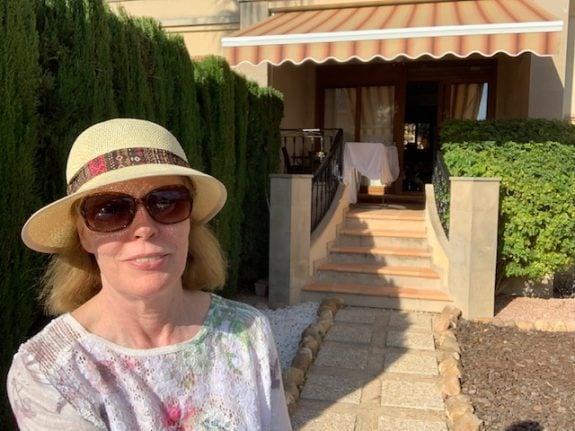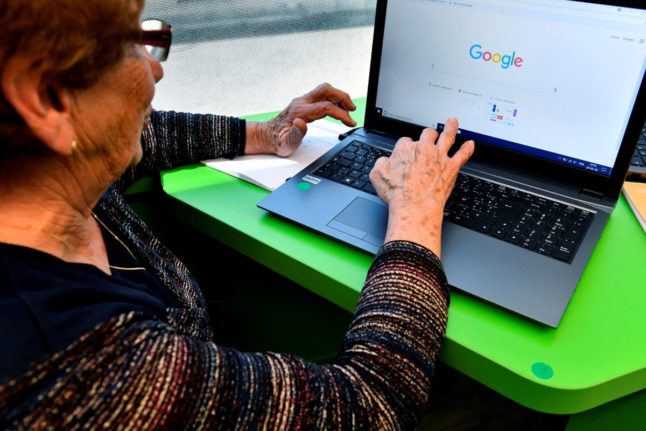Long before words like 'customs union' and the 'Irish backstop' came into our daily vocabulary, I had been thinking that some day, in the far distant future, I might like to transition to Spain.
To be honest it was one of those holiday pipe dreams many of us have after peeking at estate agent windows touting cheap properties in sunnier climes, quickly forgotten upon return to the practicalities of the real world.
When the Brexit referendum went to the polls in June 2016 I never imagined that it would actually pass. I was shocked and horrified at the idea of cutting ties with Europe where I had a lifetime of close ties both personally and professionally.
READ ALSO:
- How can British second home owners spend more than 90 days in Spain after Brexit?
- The real cost of buying a house in Spain as a foreigner
- How much money do Britons in Spain need to be legally resident before and after Brexit?
Months later I took the decision to buy a house near Alicante with a view to keeping my Spanish relocation options open. I soon had a long-term tenant and continued my daily life in London while waiting to learn how Brexit might force a decision to stay in London or commit to Europe.
In spite of Theresa May’s oft-repeated reassurance that “Brexit meant Brexit”, I soon realised that Brexit mostly meant uncertainty.
For the next three and a half years I followed the comings and goings of politicians in Europe and the UK increasingly concerned at what rights I might lose to travel, work and access healthcare in a post-Brexit Spain.
 With then-mayor Boris Johnson at a dinner and talk for London business owners. I could not have known then that Boris would become one of the main architects of the Brexit withdrawal that would eventually lead to my decision to leave the UK.
With then-mayor Boris Johnson at a dinner and talk for London business owners. I could not have known then that Boris would become one of the main architects of the Brexit withdrawal that would eventually lead to my decision to leave the UK.
Finally, following the Withdrawal Agreement of July 2019, and frankly, tired of the anxiety that came with rumours of impending post-Brexit doom, I decided to become a resident in Spain prior to the December 31st deadline. Last summer, I still had the luxury of time to make my transition a lengthy, considered and methodical one.
In the meantime, news from Wuhan with its virus problems seemed very far away indeed. But, as Covid spread, so did a sense that something big was about to change.

Empty supermarket shelves in London.
As people started to hoard pasta and toilet paper, I began to feel what many refugees feel, waiting to decide what to do until the very last moment, hoping against hope, that the war (or in this case, a modern-day Bubonic Plague) would not end up on my doorstep. Unfortunately, arrive it did.
On Friday March 13th, Spain’s Prime Minister Pedro Sanchez declared a State of Emergency which included a total lock-down to begin on the following Monday. Suddenly, I was faced with no time to consider the consequences of making a major life decision to flee my London home for Spain. I now had two days to decide what to do with almost 30 years of accumulated possessions.
Every refugee must decide what they will take, and leave behind. A devotee of Marie Kondo’s advice on decluttering, I had been on a healthy path of recycling or gifting many things I did not really need, while trying to retain mostly things that only gave me joy.
I now found myself at the local recycle centre discarding entire pieces of furniture without even looking at what might be inside. Panic was an amazing motivator – and by 9pm on Sunday March 15th, I was boarding one of the last flights to Spain for the next several months.

Arriving in an eerily quiet Alicante airport.
Upon arrival at Alicante’s normally bustling airport the Guardia Civil hurried us out of the terminal, bypassing passport control. I had a sense in the next few days that I had taken a time machine into London’s future, because Spain’s lockdown was already in full force, with deserted motorways and streets (aside from the lucky dog walkers), and heavy fines imposed by police on anyone caught breaking the lockdown rules. In comparison Londoners were still functioning relatively normally – even as Boris Johnson himself was in hospital with the virus.
Spain’s two-month lockdown in April and May was brutal. I counted myself lucky to have had a fresh air balcony, a feature which instantly became a status symbol in Spain.
As in much of the world, everything was closed – and while Spain may be famous for its sunny weather, it was wet and cool around Alicante during the lockdown, while London was enjoying a magnificent warm and sunny spring.
Perhaps it was inevitable that some envy, homesickness and even self-doubt began to creep in as the lock-down and Covid crisis persisted longer than anyone could have imagined.

A sign in English outlining Covid-19 safety rules on a local terraza.
I am aware that everyone now has their own lockdown story, and my gratitude diary is full on a daily basis compared to what many have had to suffer. I will, therefore, not complain about the bureaucracy I had to face to get all of my Spanish residency documentation in order, during a pandemic.
I also would have liked to share my relocation experience with family and friends who offered to help, all of whom had to cancel their travel plans due to restrictions. I did feel some sense of loss that the relocation that was meant to be a celebration of a new start and the fulfilment of an impossible dream ended up being such a very different experience, albeit one with no regrets.
Like any refugee there was certainly a feeling of relief in having escaped something – in somehow making it to the other side, against all odds.
But there was also a sense that I had lost some of my personal choice in this relocation, and certainly some of the celebration that normally comes with this kind of life transition.
Brexit started my refugee process, but it was Covid-19 that ensured that there was no time to say good-bye to friends, nor were there farewell parties in workplaces where I had known colleagues for so many years.
Then, one day, after facing the challenge of moving yet another carload of my earthly belongings into my newly vacated home, I experienced a moment of clarity. I was sitting on my patio when I suddenly heard something.
It was… the sound of silence, only broken by the swish of palm fronds from a tree in my back garden. In London the din of megacity noises had become so normalised that this natural sound almost took my breath away.
Like everyone I must now wait for the new year to see what the post-Brexit relationship between Spain and Britain will actually look like on a day-to-day basis.
And, although I did not come to Spain for the weather, the mostly sunny days and a temperate climate have been an unanticipated plus. There are worse places on earth to be marooned.
Deborah Hill worked as a face2face psychotherapist in London for over 20 years and is now working from home as an on-line counsellor. Contact her via email HERE.
READ ALSO:



 Please whitelist us to continue reading.
Please whitelist us to continue reading.
Member comments